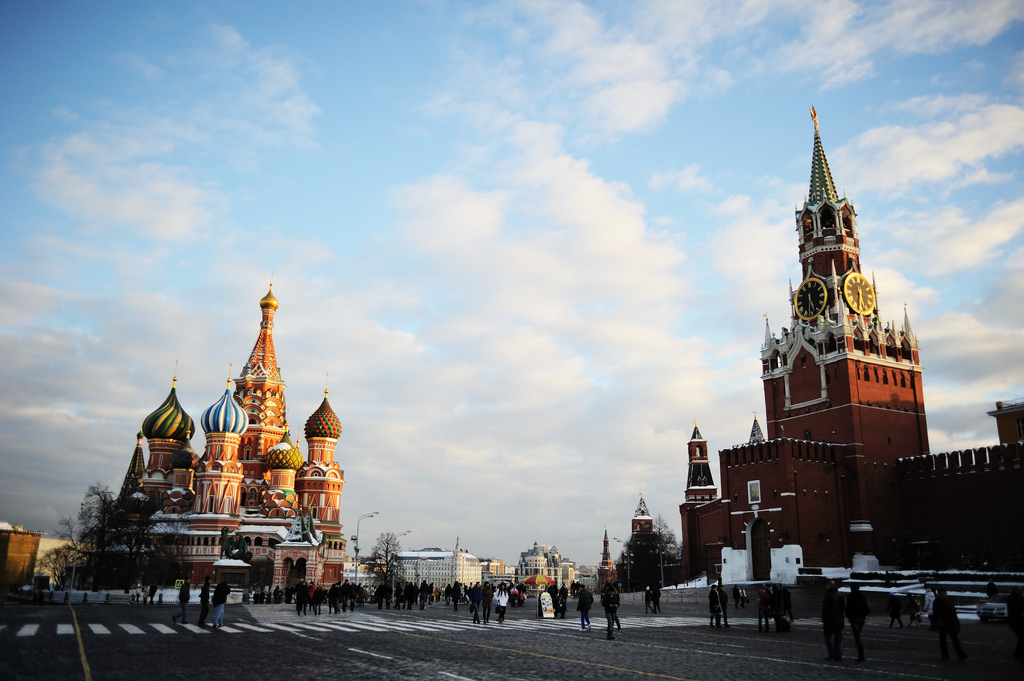The Peninsula
A Renaissance in Russia-North Korea Relations?

By Troy Stangarone
During the Cold War, Russia served as North Korea’s primary trading partner and provider of security guarantees. As the Cold War came to an end, however, Russia reoriented its foreign policy towards the West and relations with North Korea were downgraded as Moscow sought closer ties with Seoul. That may be changing. In recent months there have been indications that relations could again be warming between Russia and North Korea.
Today, North Korea has become dependent upon China. China’s share of North Korea’s trade has grown from 41.6 percent in 2007 to 57.1 percent last year. This is similar to North Korea’s dependence on the Soviet Union when the Cold War was coming to an end. In 1988, trade between the Soviet Union and North Korea had grown to $2.8 billion, accounting for 56 percent of North Korea’s two-way trade.
With the ending of the Cold War the relationship began to change. Military cooperation and Russia’s obligation to defend North Korea slowly came to an end, and trade began to dry up after Mikhail Gorbachev converted all of the Soviet Union’s trade relations to commercial terms. What had been North Korea’s most important trade relationship has fallen to a mere $62 million in two-way trade in 2010 according to the WTO’s Trade Map.
That has begun to change recently as North Korea seeks aid and investment for its economy in advance of 2012. However, increased economic ties between Russia and North Korea have long been blocked by Pyongyang’s inability to pay off Soviet era debt, but the two sides have recently found a way to address this issue. Under the current proposal, Moscow would forgive 90 percent of North Korea’s debt and reinvest the remaining 10 percent in projects in North Korea.
At the recent summit in Ulan-Ude, Russia provided North Korea with 50,000 metric tons of grain as food aid and the two sides agreed to explore the development of a gas pipeline through North Korea that would supply Russian gas to South Korea. The project would potentially provide North Korea with $100 million in transit fees per year, or about five times as much as it currently receives in wages from the Kaesong Industrial Complex with South Korea.
Russia is also undertaking other economic development projects in North Korea. It recently repaired a rail line connecting Khasan in Russia to Rajin in North Korea, where it is building a container terminal. It has also expressed an interested in ultimately connecting the Trans-Siberian Railway to the Inter-Korean Railway, perhaps as part of the gas pipeline project.
On the security front, Russia and North Korea have also announced they will conduct joint naval exercises in 2012. The exercises will focus on joint search and rescue operations.
As cooperation between Russia and North Korea has increased, Seoul has grown weary. Improved ties between Moscow and Pyongyang, however, are unlikely to be a challenge for South Korea. Russia’s interests in North Korea ultimately have little to do with North Korea itself, but rather a means to a larger ends.
After the Cold War, Russia’s influence in Asia and the Korean peninsula began to wane and its cooperation with North Korea is part of its efforts to restore its influence in the region, while at the same time integrate the Russian Far East into East Asia.
The Russian Far East has some of the world’s largest deposits of oil and natural gas and the pipeline to South Korea will help Russia diversify beyond its current Europe customers and help to put pressure on China in its negotiations with Russia. Even linking the Trans-Siberian Railway with the Inter-Korean Railway is more about connecting Russia to South Korea than greater ties with North Korea.
If Russia is to find new markets for its natural resources, as well as potentially entice South Korean capital to help modernize Russia, it needs stability on the Korean peninsula and a direct connection to South Korea. This will require it to improve its ties with North Korea, which could also enhance its influence in the region, meeting both of Russia’s goals for its policy towards the region. Ultimately, though, increased ties with Pyongyang are more about South Korea than North Korea.
Troy Stangarone is the Senior Director of Congressional Affairs and Trade for the Korea Economic Institute. The views expressed here are his own.
